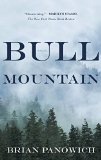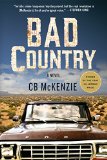Summary | Excerpt | Reviews | Beyond the book | Read-Alikes | Genres & Themes | Author Bio

Despite its apparent solidity as a genre, the "Western" is built upon a rather shaky foundation. While readers enjoy inhabiting a world of saloons teeming with prospectors, cattle rustlers, and dancing girls, and sauntering along the dusty streets amid livery stables, blacksmith shops, and stage-coach arrivals, the reality of life in the Old West was pretty miserable. The work was often back-breaking, the food bad, the weather unforgiving, and many frontier towns were more flush with dysentery and horse manure than gold. Yet, the "Western" endures in the imagination as an almost idyllic place and time.
Part of the genre's appeal likely comes from a powerful strain in American fiction: the myth of self reliance. At the end of the day – at the end of most Westerns – the hero rides off alone into the wild, his courage and honor having been severely tested. In Westerns, the moral chaos of the communal gives way, like a gallows trap door, to the clarity of personal revelation.
Such is definitely the case with Nat Love, the former slave-turned-cowboy whose ropin,' ridin,' and revengin' fill the 400 pages of Joe R. Lansdale's raucous new novel, Paradise Sky. Based very loosely on the life of an actual former slave also named Nat Love (though the book acknowledges this debt only in passing, buried in an author's note at the back of the book), the protagonist's journey — from East Texas to South Dakota to the North Country — to avenge a rival is really one of self-discovery. In the course of the hero's peripatetic roving, Nat Love moves from confinement to freedom, from loneliness to love, and ultimately from anger to understanding. But mostly he moves. This is, after all, a Lansdale book. Author of dozens of crime, mystery, horror, and western novels, he is a master of rapid-fire pacing. (The first chapter of his previous Western, The Thicket, features more action than one finds in most complete novels.)
Paradise Sky ticks off all the requisite checkmarks one expects to find in the genre: wide-open spaces, cattle stampedes, crooked poker games, whores with hearts of gold, bounty hunters, Indian raids, laconic cowpokes sitting around a campfire, shooting contests, racist posses, frontier preachers bringing God to the godless, and larger than life legends like Wild Bill Hickok and Calamity Jane (see 'Beyond the Book').
Amid the ebb and flow of all this frontier flotsam is a fairly simple story, set in motion by the lingering racism of the Reconstruction era. Despite all his genteel book learning – and his prowess with a six-shooter – Nat Love can't overcome the prejudice of some small-minded Texas ranchers, who pursue him throughout the book for a phantom crime. (His real crime, of course, is being black.) Nat, who narrates the story, learns early to endure the assaults on his dignity amid the still-smoldering racism of the Reconstructed south, facing prejudice whenever he leaves his farm and ventures into town:
I hated to have to go to the back of the Wilkes store and stand there with my sack in hand till Old Man Wilkes or his son, Royce, decided they would ask what it was I wanted, then try to sell me the worst of the meal and flour for more than it was worth. I was supposed to sort of shuck and yuk with them until I got as good a deal as I could get without appearing uppity or pushy. It was a thing that wore a man out, young or old. But it was part of survival training.
Nat Love's survival skills are going to be tested far more severely throughout the course of the novel, as the reader is treated to first-hand descriptions of lynchings, beatings, make-shift surgery, scalping, suffocation, and just about any scatological indignity one can think of – and Lansdale thinks of plenty (squeamish readers, be warned: excremental references pile up throughout). The first-person point of view keeps the novel folksy, though perhaps a bit too folksy for some readers' ears ("I was feeling about as low as a man could feel. Right then I could have walked under a fat snake's belly wearing a top hat and tall heel boots.") But Lansdale's brand of literary elan is what most readers of western fiction are likely looking for: a story that gallops at a wild stallion's pace, harnessing all the lore of the landscape, trotting out the requisite stereotypes but also bucking tradition with the kind of protagonist who seldom reigns in this genre.
Though his book traffics among some real people and historical events, Lansdale offers a final, lariat-sized loophole in his author's note, claiming he aimed for accuracy "while adhering to the mythology-building tradition of all great western storytellers of the time." Just as well. When it comes to life in the old West, Lansdale's exciting, re-imagined world has grim reality outgunned.
Editor's Note
A biographical sketch of the real Nat Love, "The Fearless Black Cowboy of the Wild, Wild West," makes for fascinating reading.
![]() This review
first ran in the July 22, 2015
issue of BookBrowse Recommends.
This review
first ran in the July 22, 2015
issue of BookBrowse Recommends.

If you liked Paradise Sky, try these:

by Brian Panowich
Published 2016
Winner of the 2015 BookBrowse Debut Author Award
From a remarkable new voice in Southern fiction, a multigenerational saga of crime, family, and vengeance.

by CB McKenzie
Published 2016
The newest winner of the Tony Hillerman Prize, a debut mystery set in the Southwest starring a former rodeo cowboy turned private investigator, told in a transfixingly original style.
Your guide toexceptional books
BookBrowse seeks out and recommends the best in contemporary fiction and nonfiction—books that not only engage and entertain but also deepen our understanding of ourselves and the world around us.